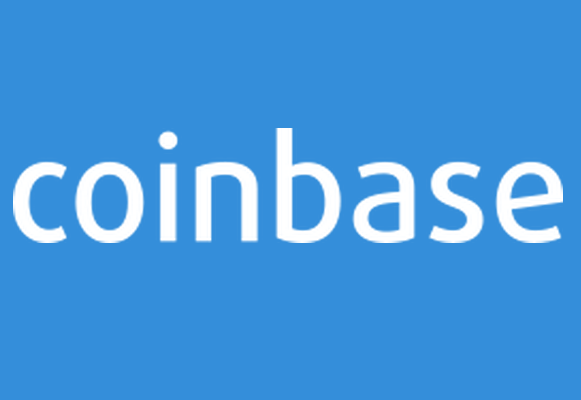
Armory and the monetization of bitcoin wallets
A group of prominent investors recently made a play in the bitcoin wallet space by backing startup Armory Technologies, Inc. The $600,000 seed round investment will go mostly towards funding and expanding development.
Interestingly, this placement brings into focus a much larger issue: the monetization of bitcoin wallets.
It's no mistake that Armory founder and CEO Alan Reiner told CoinDesk: "This first 12 months is more about developing a quality product than it is figuring out how to monetize it." An effective wallet monetization strategy doesn't exist yet.
Even lead investor Trace Mayer agrees. Wallets being in dire need of improvement is "actually very problematic and a tragedy of the commons problem which I fear will likely only get worse because it is so difficult to monetize wallets," he wrote. Mayer also said: "There is no immediate plan for how to monetize Armory."
Indeed, wallet development may get funded, but revenue and profitability are different issues. Here is how I see this market playing out.
It may be comforting to wallet investors that open source Mozilla Firefox has 18.29% worldwide market share of the free browser market, but receives $300 million per year from a Google search deal. Similarly, eyeballs from bitcoin wallets could steer exchange choices but that's in the long term.
Armory is an open source bitcoin wallet with a strong reputation for security and it is considered a 'thick client', meaning that downloading the entire block chain is required to verify transactions.
For low overhead and faster mobile applications, future releases will support a spectrum of block chain access options and the desktop-to-mobile interaction will be important.
Just as with web browsers, the client front-end (or wallet) is part of a grander play in the space. With the online wallets of traditional payment methods, the grander play for transactional and value-add revenue is currently being executed by the technology giants, telecoms, and banks.
The answer lies with the bitcoin service providers. Today's hosted wallet services, merchant processors, and integrated exchanges offer the best near-term choice for wallet monetization, but it will most likely involve a third party and a mobile app.
Bitcoin exchanges already experience a good portion of their customer base using the exchange as an online wallet of sorts. As the bitcoin economy matures, service providers will be searching for unique differentiators to gain a competitive advantage.
Either the service providers evolve into turbo-charged, sophisticated wallets or the bitcoin wallets themselves emerge as premier service providers as seen with the Send Shared mixing service from Blockchain's My Wallet.
Since it's a convergence either way, the future of wallets probably includes a combination of both approaches. Armory's management team has a tabula rasa business model in front of them now and they will no doubt be presented with several promising opportunities to build or partner. So let's focus instead on the evolution of the third-party service providers becoming sophisticated wallets.
For corporate security reasons, there's probably a place for desktop wallets in the future, but the majority of innovation will be in the web-based and mobile wallets.
, where the user maintains the private keys, and hierarchical deterministic (HD) wallets offer two of the most promising areas for development.
To see where all of this is headed, just look at the feature set of the Blockchain Android App for My Wallet and that doesn't even include P2SH and split key support.

coindesk
Take Coinbase for example. The company operates a hosted bitcoin wallet with two-way exchange capabilities and it smartly realizes that consumers are also merchants, and vice versa.
A Coinbase-Armory mobile wallet app could broaden out the Coinbase offering by allowing customers more direct control over their coins using different hosted wallet scenarios. Their primary downside right now is that they only provide a domestic exchange service for the US.
is a decentralized approach to trading bitcoin because it matches buyers and sellers in various local regions for trade clearing and settlement.
Sellers maintaining bitcoin balances on the LocalBitcoins wallet is the preferred way to operate. With greater functionality, the site could easily evolve into a primary hosted wallet service in its own right. The company is already offering support for multi-currency and has a global following.
As more bitcoin balances are kept by the merchants rather than exchanged out to national currencies, the merchant processors start to resemble a hosted wallet because the exchange services become less important. The online secure access and management reporting capabilities of the wallet become the wedge for competitive differentiation.
Going outside of the bitcoin ecosystem, it's easy to imagine commercial banks and portfolio managers offering specialized bitcoin custodial services to their client base, including branded hardware wallets. When the online casino world goes full bitcoin, the wallet integration issues will be front and center. All present excellent revenue opportunities for leading wallet vendors, not excluding transaction-based revenue.
As new companies and new business initiatives enter the bitcoin market, they will look to the well-known wallets.
Established wallet leaders with reputable brands and diverse offerings will be able to leverage that into a service-oriented model. With integration, maintenance, and even hosting potential, the superior bitcoin wallets like Armory have a bright future.
Disclaimer: The views expressed in this article are those of the author and do not necessarily represent the views of, and should not be attributed to, CoinDesk.
Follow author on Twitter.
Feature credit: bitcoinarmory.com
DISCLOSURE
The leader in news and information on cryptocurrency, digital assets and the future of money, CoinDesk is a media outlet that strives for the highest journalistic standards and abides by a strict set of editorial policies. CoinDesk is an independent operating subsidiary of Digital Currency Group, which invests in cryptocurrencies and blockchain startups. As part of their compensation, certain CoinDesk employees, including editorial employees, may receive exposure to DCG equity in the form of stock appreciation rights, which vest over a multi-year period. CoinDesk journalists are not allowed to purchase stock outright in DCG.


